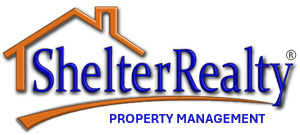Las Vegas Home Inspections

Inspections Prior To Listing
Having a Home inspected prior to purchase is an important safeguard for buyers and lenders, in order to ensure that the structure that represents thousands of dollars in investment capital is sound and the home’s vital components are in good working order.
Las Vegas home sellers would do well to have their homes inspected prior to listing, in order to be assured that the home is in good repair or that any problems found have been dealt with.
Although some states do not require licensing of home inspectors, the State of Nevada does. Inspectors are licensed and regulated by the Nevada Real Estate Division, and certified under the categories of Residential, Commercial and Master Inspector.
Home inspectors can be located through the National Association of Home Inspectors (NAHI.) Certification by the NAHI is a professional credential for home inspectors.
A home inspector check list will include the following:
- Home interior
- Home exterior
- Foundation
- Roof, flashings and gutters
- Roof support structure
- Attic
- Basement (if applicable)
- Insulation quality
- Garage
- Electrical
- Visible plumbing, interior and exterior
- Central air and heating
After inspection, a written report will be issued that will describe the home’s overall condition and will indicate any problematical issues discovered.
When interviewing an inspector, find out what type of insurance coverage or coverage’s he has. He should have liability insurance, but he may or may not be covered by an errors or omissions policy (E&O.) An E&O policy will cover an inspector who is negligent in his work, overlooks a serious defect or malfunction, or signs off on an inspection report without denoting an obviously existing problem.
It is important to note that inspectors do not examine a home in minute detail. Inspections are visual and done primarily to discover adverse conditions, and/or safety concerns, and not cosmetic items. Wiring and plumbing not visible to the naked eye, for example, would obviously not be possible to inspect.
Inspectors do not verify code compliance, and cannot inspect inaccessible areas of the home. Additionally, the inspector cannot guarantee that some structural problem or component of the home that has been inspected might fail sometime after the inspection date, if it was in apparently good condition or good working order at the time inspected.
Since long-term prospects of systems can’t be predicted, it would be a good idea to ask the inspector if any systems he has examined might need a specialists attention in the near future.
Certainly, radon and pest inspections are very important as well, and a home inspection company might offer to subcontract and get these inspections done for you, but it probably would cost less to hire these specialists yourself.
Tony Sena is broker/owner of Shelter Realty in Las Vegas Nevada. For more than a decade Tony and his partners have provided residential real estate and property management services to sellers, buyers, investors, and property owners in the Las Vegas Valley. A Las Vegas native and former police officer for the City of Henderson, Tony brings to the table a unique local perspective that continues to serve his clients well.
